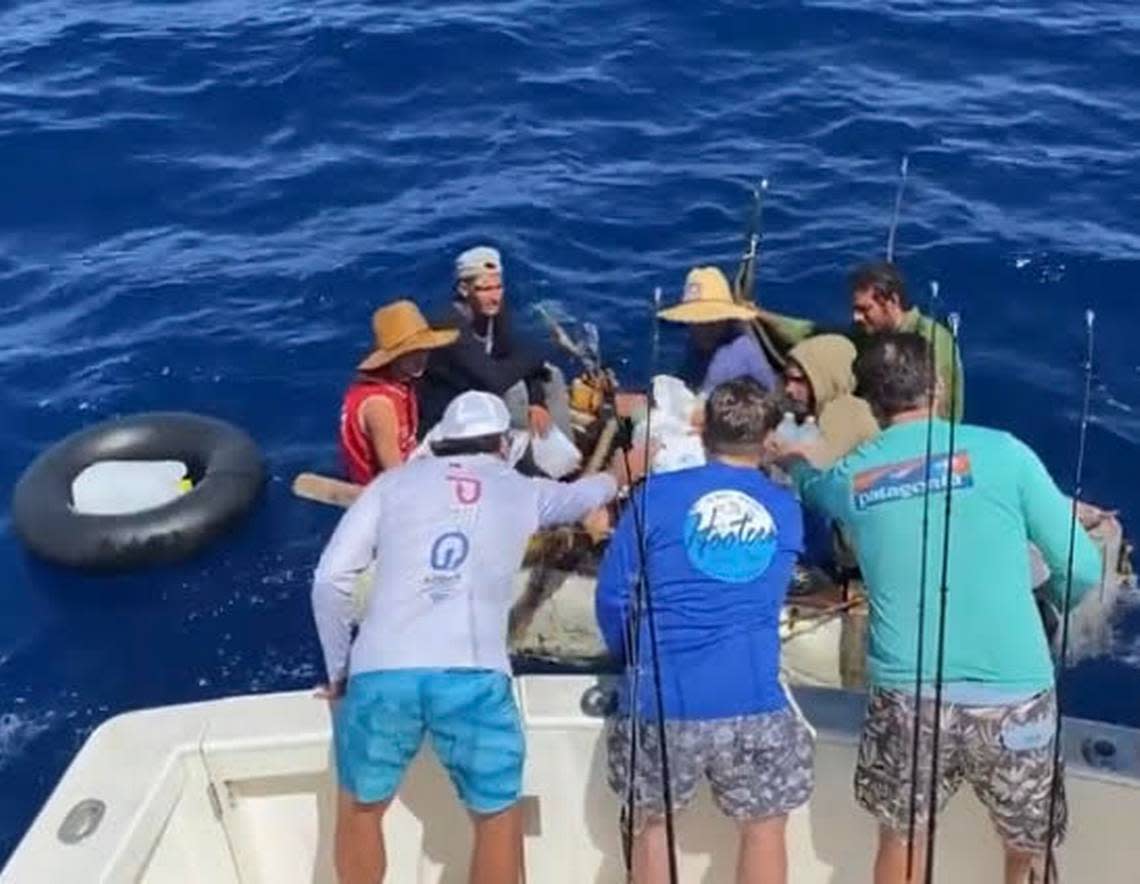Charter captain encounters Cuban migrants off Florida Keys

On Saturday, Scott Feltman, captain of Hound Dawg Charters in Islamorada, was fishing with clients about 21 miles offshore when they encountered a small boat with five men on board.
The men were Cuban migrants. Feltman, a longtime waterman, estimates they must have been floating in the Gulfstream for four to five days, based on the small size of their vessel and given the distance between the Upper Keys and Cuba.
“I’ve seen a lot of rafts out in my 26 years of fishing out there,” the 49-year-old said.
The men who chartered the Hound Dawg spoke fluent Spanish. The clients talked with the men, who gave them phone numbers of family members in South Florida so they could call and tell them they were safe.
Feltman, his crew and the charter clients also gave the men food and water before sending them on their way.
Feltman videoed the encounter and posted the footage on his Facebook page.
The fishing captain decided against towing the men to shore because he didn’t want to break the law. He said he would have had any of them been injured or the weather was rough.
“It was flat-calm waters the other day,” said Feltman.
He also did not report the migrant vessel because he hoped they would make it to land undetected. He said with all the turmoil and government oppression in Cuba happening now, he was rooting for the men.
Listen to today's top stories from the Miami Herald:
Subscribe: Apple Podcasts | Spotify | Amazon Alexa | Google Assistant | More options
“I think they deserve to stay in the country if they make it,” Feltman said in an interview Monday.
That ended up not happening, according to U.S. Coast Guard Petty Officer Nicole Groll. She didn’t have many details Monday, but she said the men were stopped by a Coast Guard patrol at sea over the weekend and will be sent back to Cuba.
Up until 2017, those from Cuba who made it to shore and set foot on land above the high-water mark were allowed to stay in the country and apply for permanent residency after a year. Those stopped at sea were sent back to Cuba.
The policy, “wet-foot, dry-foot,” was ended by the Obama administration in January of that year in one of its final foreign policy decisions due to its efforts to strengthen ties with the communist Cuban government.
Since the policy ended, the Coast Guard and other federal agencies that enforce migration saw a precipitous drop in those attempting to make the dangerous journey across the Florida Straits.
That trend reversed this year, however. In fiscal year 2021, which runs from October to October, the Coast Guard stopped almost 560 people from Cuba trying to reach South Florida. That is compared to just 49 people the prior fiscal year, according to the Coast Guard.
But, as the mass anti-government protests in Cuba got underway on July 11, maritime migration between the island nation and South Florida came to an abrupt halt. The people Feltman encountered were the first known to have attempted the trip from Cuba since early July.
Experts watching the developments of the protests said that could be because security forces are keeping a closer watch on people’s activities, making it difficult to leave.

 Yahoo Movies
Yahoo Movies 
